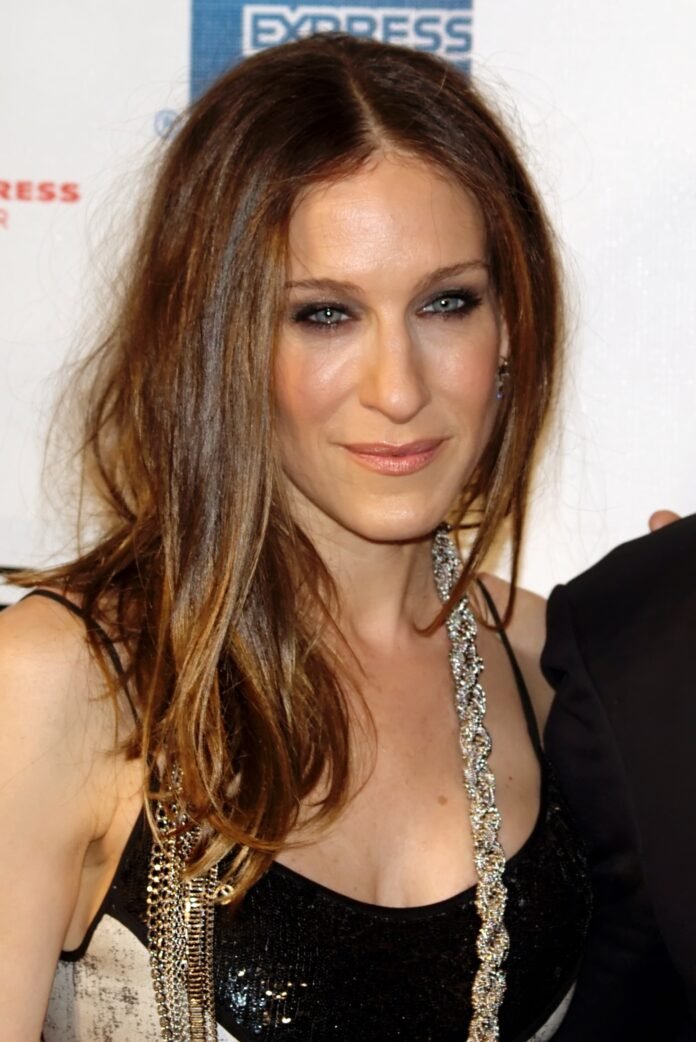Sarah Jessica Parker, the 60-year-old actress best known for her portrayal of Carrie Bradshaw on Sex and the City, has revealed a deeply emotional side to her experience in the spotlight. In a candid interview on Alex Cooper’s Call Her Daddy podcast, Parker described the intense personal scrutiny she faced when the hit HBO series premiered in 1998–1999. Though she expected criticism of her work or character, it was commentary on her physical appearance that left her “sobbing” and feeling “filleted.”
Early Confidence Meets Harsh Public Judgment
Parker entered Sex and the City believing herself to be fairly confident in both her professional abilities and personal image. Prior to the show’s debut, she enjoyed a career defined by her performances, not by tabloid speculation. “Up to that point, there was no chatter about me,” Parker told Cooper. “There was just my work.” But as the series exploded in popularity, so too did public discussion–not about her acting, but about her body, face and wardrobe choices in ways Parker described as “mean” and “purposeful.”
The Uncomfortable Reality of Physical Criticism
During the Call Her Daddy episode, Parker recalled reading a magazine article that attacked her appearance. “It was like a kick in the rubber parts,” she said. “I was just like, ‘Why is this a problem? Why is this deserving of your time and why do you seem to delight in saying it?’” That particular critique, she admitted, reduced her to tears. “I was sobbing because it felt so purposeful,” she said. It was the first–and, she believed, the only–time she cried over a public comment about her looks.
Carrie Bradshaw Versus Sarah Jessica Parker
Much of the audience’s frustration rested on a blurring of the character’s identity with the actress herself. Viewers who disliked Carrie’s fashion-forward eccentricity or perceived superficiality sometimes targeted Parker personally. “Sometimes I would get frustrated with viewers’ misunderstanding of Carrie,” she explained, “but not because it was about the work.” Instead, it was “the personal stuff”–comments about her nose, her weight fluctuations and her style choices–that felt invasive.
Navigating a New Social Media Landscape
Parker noted that when Sex and the City first aired, the public discourse was limited to print magazines and television talk shows. Today’s landscape, dominated by social media, can amplify both support and vitriol. “I wonder if people who say those things now would say it to my face,” she mused. While platforms like X (formerly Twitter) and Instagram allow celebrities to engage directly with fans, they also open floodgates to anonymous attacks. For Parker, the memories of that early criticism remain vivid, even as she continues to navigate public life in a more connected era.
Resilience and Reflection
Despite the pain it caused, Parker believes the experience ultimately made her stronger. “I know you know this: We’re better for those kinds of experiences,” she told Cooper, “but not all of us are good at it right away.” Parker credits her upbringing and her family’s support for helping her weather the storm of criticism. Married to actor Matthew Broderick since 1997 and a mother of three, she draws strength from her personal life and her decades-long friendship with co-star Cynthia Nixon.
Impact on And Just Like That…
Parker reprised her role as Carrie Bradshaw in HBO Max’s And Just Like That…, the sequel series that explores the characters’ lives in their 50s and 60s. Her willingness to revisit the role suggests she has come to terms with the scrutiny that accompanies playing an iconic figure. In promotional interviews for the revival, she has often spoken about aging in Hollywood and the double standards female actors face. Her Call Her Daddy revelations add a new layer to that conversation, highlighting the emotional toll that negative body commentary can inflict.
The Broader Conversation on Celebrity and Body Image
Parker’s story resonates beyond her personal journey, touching on larger issues of ageism, sexism and body shaming in the entertainment industry. Research has shown that female celebrities, particularly those over 40, receive disproportionately more negative comments about their appearance than their male counterparts. In recent years, high-profile stars such as Renee Zellweger, Amy Schumer and Selena Gomez have also spoken out about public criticism of their looks. Parker’s candor adds momentum to calls for a kinder, more respectful dialogue around bodies and beauty standards.
Moving Forward: Lessons Learned
Reflecting on her podcast appearance, Parker hopes her honesty will encourage others to speak up about the impact of cruel comments. “It really comes into question and is tested when you’re filleted, in a way, when you’re opened up,” she said. By sharing her vulnerability, Parker aims to remind fans and critics alike that actors are human beings who deserve compassion. In an industry that often equates appearance with worth, her message is clear: empathy should trump judgment.
Conclusion
Sarah Jessica Parker’s revelation about “sobbing” over public remarks on her appearance underscores the emotional challenges behind celebrity glamour. From her early days as Carrie Bradshaw to her return in And Just Like That…, she has navigated fame with resilience. While praise has come easily, it was the harshest criticisms that left the deepest scars. By speaking out, Parker not only finds personal closure but also contributes to a broader cultural shift toward greater kindness and understanding in public discourse.
